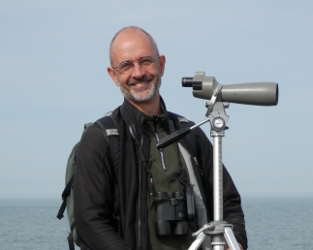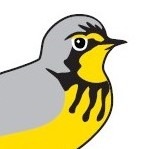By Andrew P. Coughlan, Québec Program Manager, Bird Studies Canada

Andrew Coughlan Photo: Julie Morrissette
In late July, I will be joining forces with an exceptional team of volunteers with Bird Studies Canada’s Québec Beached Bird Survey. This long-term program is currently active along the Côte-Nord and the Bas-Saint-Laurent, and around the Gaspésie peninsula. Its volunteers collect baseline information on the causes and rates of mortality of seabirds and other species using the estuary and the Québec portion of the Gulf of the St. Lawrence.
In 2017, data were submitted for nearly 300 visits to 59 beaches, representing a total of about 105 km of shoreline. In total, 156 beached birds of 25 species were reported, and the mean June-to-October carcass encounter rate ranged from 0.18/km to 0.39/km, depending on the region. Although it was not possible to determine the actual cause of death of many of the birds, none died as a result of oiling, and there were no signs of oil deposition along the beaches surveyed.
Information concerning bird and sea mammal carcasses encountered early in the year were also shared with Fisheries and Oceans Canada to help with their research into Atlantic Right Whale deaths.
Many participants also collected checklist data for the live birds they encountered, providing a valuable profile of beach, shore, and inshore water use by over 140 species. This included information on locations used by nine species at risk, many from areas that are otherwise infrequently visited by birders. In the case of an oiling event, the prior information collected about live birds will help inform emergency action teams of areas of likely bird concentrations.
This month, I will also be documenting the activity at 14 Bank Swallow colonies present along my survey beaches. This gregarious species, which Breeding Bird Survey data suggest has undergone a 95% population decline since 1970, often excavates nest tunnels in the steep faces of raised beaches and dunes. The data collected will support efforts by partners Environment and Climate Change Canada and the Regroupement QuébecOiseaux to monitor and conserve this species at risk.
Do you live in one of the above regions, or on the Îles-de-la-Madeleine? If you visit a section of beach regularly, you can help. Please email me (Andrew Coughlan) if you are interested in joining the Québec Beached Bird Survey.
This project is undertaken with the financial support of the Government of Canada, and with the much-appreciated help of the Club des Ornithologues du Bas-Saint-Laurent.

